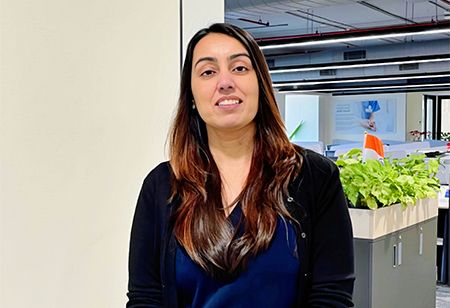Dr. Anudeep Sandhu, Director, Medical Affairs and Clinical Affairs, Terumo India Private Limited

India's healthcare ecosystem is undergoing a remarkable transformation, driven by a growing focus on enhancing health services and fostering innovation. With rapid technological advancements and new medical breakthroughs, healthcare professionals must stay updated to effectively address emerging diseases. However, as the nation progresses, it faces a critical challenge: a significant shortage of healthcare professionals. A recent report by the National Skill Development Corporation (NSDC) reveals that healthcare facilities in India are grappling with a severe staffing shortage exacerbated by population growth, a surge in non-communicable diseases, and an increasingly aging population.
To solve this, immediate and sustained action is needed to enhance training, improve workforce distribution, and equip healthcare professionals to deliver quality care across the country. Addressing these gaps will be key to building a stronger, more equitable healthcare system for all.
Reskilling Healthcare Professionals: Bridging the Skills Gap
Healthcare professionals must stay proficient in cutting-edge technologies like remote monitoring, precision/digital therapeutics, telemedicine, robotic surgery, and AI-based diagnostics. Medical science and technologies are evolving at a rapid pace. An example is how minimally invasive procedures like embolization are transforming the management of conditions like hemorrhoids, uterine fibroids, benign prostatic hyperplasia, and certain cancers, positively impacting patients’ quality of life. These advances require the HCP to continuously skill and reskill to deliver optimal patient outcomes.
Leveraging these tools can lead to faster diagnosis, improved care, and enhanced patient safety while also reducing healthcare professional burnout. Beyond addressing numerical shortages, it is essential to upgrade the skills of doctors, nurses, and technicians.
Public-Private Partnerships (PPPs) have proven to be one of the most effective ways to bridge the skills gap. Programs like the Healthcare Sector Skill Development Council (HSSC) collaborate with medical device companies, academic institutions, and government bodies to offer specialized training. These initiatives not only address technical skills but also foster patient-centred care, which is vital in today’s healthcare environment.
Leveraging Technology for Continuous Learning
Rapid advancements in technology have created a wealth of opportunities for accessible and effective training:
Underlined by this need, there is tremendous potential to enhance the learning experience of HCPs through technology, bringing knowledge and skill building closer to the place of action.
AI-driven learning platforms:Personalised learning paths help healthcare workers fill knowledge gaps more efficiently.
Virtual and augmented reality (VR/AR): These tools allow healthcare workers to simulate real-life scenarios, making training more impactful and engaging.
Telemedicine and teleconsultation: These platforms empower healthcare workers to collaborate globally, gaining insights from experts and mentors without leaving their local settings.
By adopting these advanced training methods, India can ensure its healthcare workforce is equipped to meet the challenges of an evolving world. These solutions are especially critical in addressing the rural-urban disparity in healthcare access.
Terumo India Skill Lab (TISL): A Case Study in Innovative Healthcare Education
Launched in 2018, the Terumo India Skill Lab (TISL) is a pioneering initiative that offers simulation-based learning. Platforms like TISL aim to accelerate skill building and knowledge of HCPs in India by offering a safe environment for healthcare workers to learn and practice complex procedures without risk to patients. This approach ensures healthcare professionals have the opportunity to continuously learn and upskill in a setting that suits their busy schedules.
Key features of TISL include:
By combining live workshops, digital colloquium, and medical and patient education resources, Terumo India is addressing the skills gap while improving healthcare delivery and patient outcomes across the country.
Ensuring Access Across India - Building Infrastructure that supports last mile healthcare delivery:
India's healthcare access is starkly unequal, with 70% of healthcare professionals concentrated in urban areas. Addressing this disparity requires investment in infrastructure and innovative solutions such as:
Remote Patient Monitoring: Ensures real-time access to care for rural populations.
Upskilling in Tier 2 and Tier 3 Cities: Focused training programs to empower healthcare professionals in underserved regions.
Portable Diagnostic Tools and Mobile Clinics: Bringing essential diagnostic services to remote areas to bridge the accessibility gap.
India has the potential to lead globally in healthcare innovation and accessibility. By leveraging cross-sector collaboration, reskilling healthcare professionals, and investing in technology, the country can create a resilient, inclusive healthcare system that prioritizes quality care for all citizens. A healthcare workforce ready for the challenges of tomorrow will not only bridge the gaps of today but also pave the way for a healthier, more equitable India.